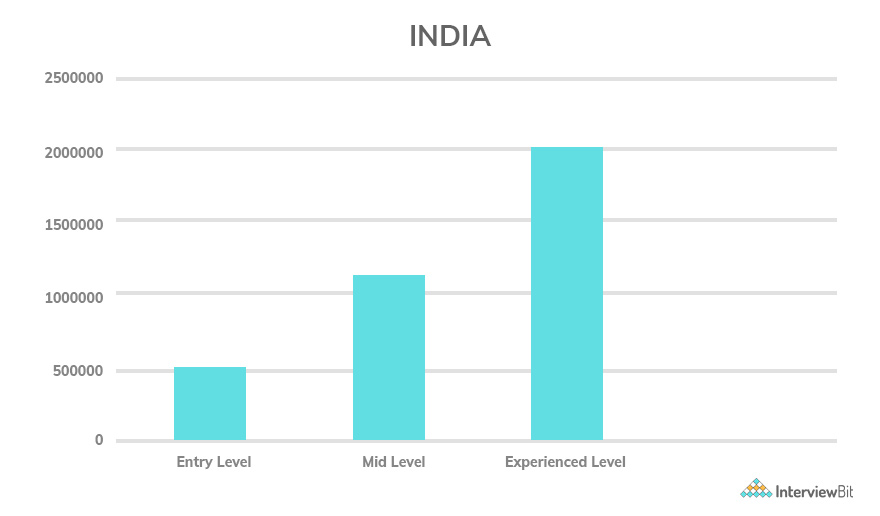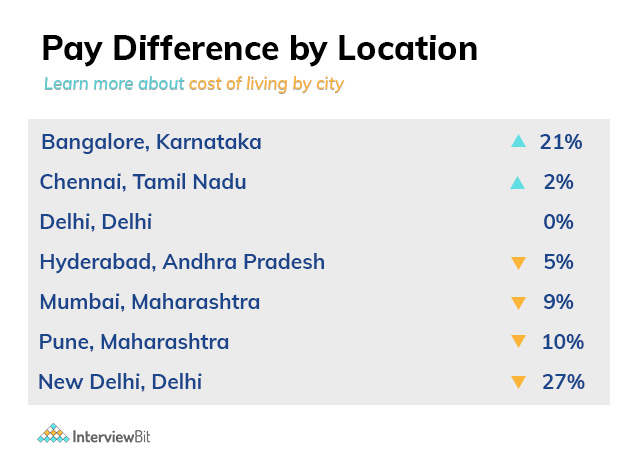- Introduction
- How to Become a Machine Learning Engineer
- Machine Learning Engineer Skills
- Machine Learning Engineer Job Description
- Who Hire Machine Learning Engineer
- Machine Learning Resume
- Machine Learning Engineer Salary
- How to Prepare for Machine Learning Interviews
- Conclusion
- FAQs
- Q.1: What should a machine learning engineer know?
- Q.2: Is machine learning a good career?
- Q.3: Is it hard to become a machine learning engineer?
- Q.4: Who earns more ML engineers or software engineers?
- Q.5: Name some important algorithms that you should know as a Machine Learning Engineer.
- Q.6: What is the main difference between machine learning and data science?
- Additional Resources
Introduction
Machine Learning, this term was given by Arthur Samuel in 1959, who was an expert in computer gaming and artificial intelligence. This term itself specifies its meaning very clearly. In simple words, it allows machines to learn automatically. As human beings, computers are now able to see, hear and learn without being explicitly programmed. They can get better from their experience.
Technically, machine learning is a subset of Artificial Intelligence that uses data collected from various sources. The next step is to apply algorithms to them, predict the output for the next input and the cycle goes on until we get the final output. This cycle occurs multiple times which helps machines to learn. It is one of the most trending fields in the 21st century used by tech giants like Amazon, Facebook, Google, Microsoft, etc. in their various products. Machine learning implementations are classified as follows:
1. Supervised learning: In this type of learning, the machine learns under supervision. They learn by feeding them the labelled data (data that has been tagged with one or more labels, for example, an image is labelled as a dog photograph) and explicitly telling them that this is the input and the predicted output should be this, this kind of data is called trained data where inputs are mapped to their output.
Confused about your next job?
2. Unsupervised learning: In this type of learning, the machine has no supervision while learning, an algorithm determines the data pattern on its own. They are fed unlabeled data (data that has not been tagged with labels, for example, new articles and tweets). Various recommendation systems are seen on the web using this learning. They learn from the user’s activities and predict the output.
3. Reinforcement learning: In this type of learning, machines are trained to make decisions so that they can achieve their goal in complex environments. It is similar to learning with trial and error. Just like human beings learn from their mistakes, similarly, machines learn by making errors, it assists you to learn because it has some penalties added in the form of time, cost, etc. For example, when an algorithm learns to play a video game that has several kinds of obstacles.

This was a brief introduction to machine learning, now let us learn about the person who performs it i.e. Machine Learning Engineer. They are responsible for designing and building automatic ML systems. They are part of big data science teams and interact with data scientists, data analysts, data engineers, and various other people outside their team to achieve their goals. They have responsibilities like collecting data for the training purpose, verifying the quality of data, doing statistical analysis, performing data visualization, training the model for top-notch accuracy, analyzing model results, fine-tuning the model, analyzing model accuracy, and retraining the systems when needed.

The following skills are required for a machine learning engineer:
- Degree in a computer science field or related field.
- Advanced knowledge of probability and statistics.
- Programming experience in Python, Julia, R, etc.
- Knowledge of data structures
- Knowledge of ML frameworks, libraries, and packages.
- Data Modeling and Evaluation
- Good collaboration and communication skills.
- Problem-solving skills
- Software engineering and system design skills
How to Become a Machine Learning Engineer

Machine Learning is an evolving field. There are no particular steps to become a machine learning engineer, it all depends on how much you are dedicated and open to learning. Every day there is a discovery. It is very important to keep yourself updated. The only thing matters is consistency in your learning. Here are some of the basic steps to get you involved in this field:
- Recognize your end goal: It is important to have a clear vision about what you want to pursue as a career in the field of machine learning. There are various roles and all have different requirements. Some require a bachelor’s degree, some require a master’s degree or Ph.D. Preparing for an ML role requires a proper commitment.
- Know data science fundamentals: You need to learn some concepts of data science. ML engineers are expected to know how to clean, query, and optimize datasets.
- Get familiar with ML tools and libraries: They are the helping hands while performing any ML task, so it is necessary to learn about different tools that are frequently used. Tools like TensorFlow, Keras, Auto ML, Theano, and Caffe are used by most of the top giants.
- Work on real-world projects: The hours you spend learning machine learning will be beneficial only if you use it in the practical world. It is very important to relate your knowledge to a real-world problem because the ultimate goal is to solve a problem using a machine learning algorithm. Get yourself involved in machine learning projects that you can showcase in your resumes and portfolios to get your dream job.
- Do an online course for learning ML or participate in boot camps, this will give you a kick-start to start your career as an ML engineer or related roles.
- Prepare yourself based on the questions that could be possibly asked by the recruiter, refer to this link to prepare for the same.
- And last but not least, your time, patience, and dedication to learn and explore the deeper you can because the tunnel is deep and it has no end.
Now let’s look into the educational qualification required for an ML engineer:
- Most of the machine learning roles need a bachelor’s or related degree in the field of computer science, mathematics, statistics, or similar fields.
- The advanced level requires a master’s degree or PhD in machine learning, data science, computer vision, or related fields.
- There are various certifications in this field that could be used as a plus point for getting a job.
Machine Learning Engineer Skills
We are living in a primitive age of machines and the future of machines is beyond our scope of imagination. The responsibilities of these kinds of machines are handled by an individual known as a Machine Learning Engineer. Let’s have a look at the top skills to be a successful machine learning engineer:
- Programming language: You must have a solid understanding of classes, data structures, and memory management. There are various languages like Python, R, Julia, Java, C++, etc. The most used language is Python.
- Linear Algebra: You must be familiar with matrices, calculus, and vectors. Other basic concepts like Gradient descent might shake off. You also need to have a firm understanding of mathematics concepts like probability, statistics, differentiation, integration, etc.
- Neural Network Architectures: They are the special set of algorithms that have revolutionized machine learning. They were inspired by biological neural networks. They have been the most accurate way of approaching any problem.
- Natural Language Processing: It is a field in ML which can analyze and understand human language. Machines learn to communicate using the concept of NLP.
- Industry Knowledge: One should have a decent knowledge of the industry they work for. If a machine learning engineer does have the business acumen and know-how of the elements that make up a successful model then the technical skills are of no use.
- Communication Skills: Soft skills also play an important role for ML engineers. They work with various teams while working on a project, so you must be able to deliver your technical findings to a non-technical team effectively.
- Other soft skills include creativity, listening, presentational skills, flexibility, problem-solving, time management, etc.
Now let’s look at some top ML tools and frameworks you need to be familiar with as an ML engineer.
Our AI community has become so strong that we have codes, blogs, frameworks, and libraries for almost everything. There is an exhaustive list of tools that help in machine learning tasks:
- Scikit Learn: It is a free ML tool for Python. It is simple and efficient for data analysis and data mining. It provides a range of supervised and unsupervised learning algorithms.
- TensorFlow: It was created by the Google Brain team. You can train multiple neural networks and multiple GPUs using this. It provides accessible and readable syntax, which makes these programming resources easy to use.
- PyTorch: It is a Python-based library built to provide flexibility as a deep learning deployment platform. Facebook uses it actively for all its machine learning and deep learning work.
- Keras: It is one of the popular frameworks in machine learning and acts as an interface for the TensorFlow libraries. The primary usage of Keras is summarization and classification. It helps in reducing cognitive load.
Some other tools and frameworks could be helping hands in machine learning tasks like Amazon Machine Learning, Theano, Firebase ML Toolkit, Auto ML, etc.
Machine Learning Engineer Job Description

In this section, we will be covering all the expectations of a machine learning engineer. Role and responsibilities for this role vary for different companies. Some typical responsibilities are as follows:
- Study and alter data science prototypes
- Designing machine learning schemes and systems
- Enrich the existing ML libraries and frameworks
- Implement various machine-learning algorithms and tools
- Develop machine learning applications based on the client’s requirements
- Select suitable datasets for the projects
- Select the appropriate data visualization method
- Analyze the use cases for an ML algorithm and rank them
- Run machine learning tests and experiments
- Perform statistical analysis and fine-tuning using test results
- Train and retrain the machine learning systems when necessary
Machine Engineers are also hired based on their experience:
- Entry-level engineers: 0-2 years of experience which may include internships.
- Mid-level engineers: 2-5 years of experience.
- Senior-level/Advanced-level engineers: 6+ years of experience.
Responsibilities increase as per the level of role you apply for. Now let’s have a look at the basic requirements for an ML engineer.
- Advanced level degree in Computer Science/Math/Statistics or a related subject.
- Advanced Math and Statistics skills (calculus, Bayesian statistics, linear algebra, mean, median, etc.)
- Strong data modelling skills.
- Robust data architecture skills.
- Programming language experience in Python, R, Julia, Java, etc.
- Understanding of Big Data frameworks like Hadoop, Spark, Pig, etc.
- Experience in working with ML frameworks like TensorFlow, Keras, PyTorch, etc.
- Experience in working with various ML libraries and packages like Scikit Learn, Tensorflow, Matplotlib, etc.
- Soft skills like strong verbal and written communication skills, excellent collaboration, interpersonal skills, time management, etc.
Let’s have a look at the sample job description for a machine learning engineer at Morgan Stanley.
The right candidate has (Responsibilities);
- Design and develop applications that power our ML platform and enable ML Ops adoption.
- Curate and document best practices to be followed by IT and Business organizations for seamless ML development, and partnership and efficiently move projects from ideation to production.
- Identify issues faced by Data and ML analysts, data scientists, and visualization teams. Develop solutions that integrate with existing platforms to solve the same.
- Coordinate with Data, AIML, Cloud, and other CoE organizations to explore and evaluate state-of-art existing products and solutions available in the wider ecosystem/marketplace.
- Ensure data integrity through – data quality, validation, Governance, and Transparency
Primary Skills
- Experienced professional with 3-7 years of experience developing and implementing ML pipelines in Big data ecosystems i.e. Hadoop, Spark, Kafka, HBase, Hive / Impala, Cassandra, MongoDB, or any other similar distributed computing technology.
- Proficiency with Scala / Python and basic libraries for machine learning such as scikit-learn, pandas, and deep-learning.
- Expertise in applied Machine learning and statistical modelling techniques in Python / Java / Scala. Experience using ML platforms such as Dataiku / Databricks is a plus.
- Understanding of modern platforms, design patterns, and cloud-based technology offerings.
- Understanding of data structures, data modelling, and software architecture.
- Proficiency in data analysis using complex and optimized SQL.
- Experience in architecture, design, and implementation of data-intensive applications for practical use cases.
- Ability to work in a fast-paced and dynamic environment.
- Good written and verbal communication skills
Who Hire Machine Learning Engineer
Some of the top recruiters who actively hire Machine Learning Engineers are as follows:
- Tata Consultancy Services
- Quantiphi
- Amazon
- Uber
- Adobe
- Phenom
- Intel Corporation
- Accenture
- Qualcomm
- Persistent Systems
Apart from the IT industry, various other industries are working in the field of machine learning, these include:
- Transportation Sector: Companies like Exploride, Almotive, and Third Space Auto fall in this category
- Healthcare: Companies like Oncura Medical, Babylon Health, and Corti fall in this category.
- Retail and Customer Services: Companies like Walmart, Tesco, and Costco fall in this category
- Finance sector: Companies like Credit Decisions, ZestFinance, and DataRobot fall in this category
In the past year, there has been a rapid increase in machine learning models in real-world use. People are relying on automatic machines to complete their tasks, that’s why there is a need for a person who can deal with it, this is the reason why machine learning engineers and similar roles are preferred.
Machine Learning Resume
For any job role, the foremost thing is to send your resume to any company. So you must know the art of resume writing to get qualified for the next rounds. Here is some data about resume analysis. A recruiter spends an average time of 4-6 seconds scanning a resume and concluding whether it was worth calling this candidate for an interview. Approximately 80% of resumes get rejected by the automatic systems known as Applicant Tracking System (ATS) based on various filters. Here are a few tips to build a resume:
- Choose the correct format.
- Try to use keywords that are present in the job description given by the company in your resume. This doesn’t mean that you should flaunt the skills you are not aware of.
- Use bullet points instead of paragraphs, and avoid putting your photograph.
- Use the same font throughout the resume.
- Use an active voice.
- Use online tools like Grammarly to avoid spell checks and grammatical errors.
- Put the correct machine-learning skills in your resume.
- List your most impressive accomplishments first.
- Your resume should mainly focus on your machine learning skills, one should not get diverted to the things that are not part of the job description until it’s important to show.
- Use simple and small sentences to deliver your descriptions, interviewers avoid looking into the long sentences.
Here are a few things that should avoid in your resume:
- Photograph in the resume header.
- Irrelevant certifications.
- Long summary section.
- Vague descriptions about your projects or experience.
Machine Learning Engineer Salary
The salary of machine learning engineers depends on several factors like experience, company, location, and skills. We will discuss each of the factors individually.
1. Pay By Experience:
Experience is the most important factor in terms of settling a salary structure. The amount of knowledge decides the amount in your account and knowledge comes with experience. The better the knowledge, the more you will earn.
Entry-level engineers: Engineers at this level have experience of 0-4 years. The average salary is approximately $98,000 per annum. In India, it is around Rs. 5,01,058 p.a.
Mid-level engineers: Engineers at this level have experience of 5-9 years. The average salary is approximately $112,093 per annum. In India, it is around Rs. 11,42,020 p.a.
Experienced level engineers: Engineers at this level have experience of 10+ years. The average salary is approximately $135,000 per annum. In India, it is around Rs. 20,00,000 p.a.

Salary based on level in India

Salary based on level in US
2. Pay By Location:
Here we have discussed salary trends in the cities of India and the United States.
India:
The Silicon Valley of India, Bangalore offers around 21% higher salary as compared to other cities. The highest salaries are offered at this location. Talking about the other cities, below is the table showing the difference in salaries concerning the average salary.

United States:
Cupertino, a city in California, has the highest salary structure for ML engineers. It is approximately $199,552 p.a. After this comes San Francisco which pays around $197,500 p.a to its ML engineers. This table shows the salary structure for other cities in the US.

3. Pay By Company:
Companies are moving towards the world of Artificial Intelligence. They are investing a lot of money in developing AI-based machines that will be beneficial for human beings in the future. Here is the list of some companies that are paying the highest salaries to their ML engineers.
| Company | Pay (per annum) |
| Uber | $314,746 |
| Walmart Labs | $265,698 |
| Netflix | $264,799 |
| $257,846 | |
| Salesforce | $248,281 |
| $236,388 | |
| Coupang | $234,348 |
| $230,639 | |
| Splunk | $227,202 |
| Apple | $227,094 |
4. Pay Based on Skills:
To earn high salaries you need to have an impressive set of skills. In the world of changing technologies, you need to keep yourself updated with new and trending technologies that most big companies expect from their employees. Different technologies need different skill sets. You need to choose the right one which is most demanding and provides you with high paycheques. Some of the highest-paid skills are listed in the table below:
| Skill | Pay (per annum) |
| Python | ₹613,000 |
| Deep Learning | ₹755,250 |
| Natural Language Processing(NLP) | ₹698,088 |
| Computer Vision | ₹737,123 |
| Machine Learning | ₹707,150 |
How to Prepare for Machine Learning Interviews

Various types of interviews are part of the ML engineer hiring process. These interviews are not properly structured, the flow of the interview is decided by the interviewees or interviewers, and it’s dynamic. You cannot predict the flow of the interview. One needs to focus on the following points while preparing for machine learning interviews:
- Stick to one programming language: Various languages are used as a part of machine learning like Python, Julia, R, C#, Scala, C++, Java, etc but you should have expertise in one of them to avoid confusion. Some of the basic concepts that should be mastered are data structures (linked lists, stacks, trees, or queues), preferring vectorized operations instead of loops, and handling exceptions.
- Learn about ML libraries, tools, and frameworks thoroughly, they play a crucial role while performing ML. Following are some of the resources to learn Keras, scikit-learn, NumPy, scipy, and pandas.
- There should be a well-organized routine to follow as a part of a typical machine learning project, it includes data collection, data cleaning, getting rid of missing values, feature engineering, splitting the data, choosing an algorithm, dealing with underfitting and overfitting, hyperparameter tuning and finally the model deployment into production.
- ML engineers need to have good problem-solving skills, you should know how to analyze the problem statement and choose the appropriate type of machine learning technique (supervised, unsupervised, and reinforcement).
- Learn about basic algorithms for the three types of learning individually, for supervised learning we have linear and logistic regression, decision trees, support vector machines, and gradient descent. For unsupervised learning, we have k-means clustering, k-nearest neighbours, and hierarchical clustering, and for reinforcement learning, we have the Q-learning algorithm.
- Another important part of machine learning is feature extraction. You should learn about basic encoding techniques like one-hot encoding, label encoding, and frequency encoding.
- Usually, the kind of data we have is high dimensional in ML, so you should be aware of various data visualization techniques like t-SNE and PCA, interviewers sometimes ask about it too.
- You should have a better understanding of data structures like linked lists, stacks, queues, trees, etc.
- Statistics and Probability are part of the building blocks of ML. One must have a basic understanding of the concepts in both domains as they are useful while solving a machine learning problem.
- Apart from technical interviews, it is also important to prepare your answers for HR rounds of behavioural rounds. Sometimes the questions like “What are your strengths and weakness?”, “What was your biggest failure and how did you come out with the solution?”, “Where do you see yourself in the next 5 years?”, etc. can bring the change in chances of getting selected.
You can also refer to some books to improve your machine-learning skills, here is the list:
- Hands-on Machine Learning with Scikit-Learn, Keras and TensorFlow
- Deep Learning (Adaptive Computation and Machine Learning Series)
- Introduction to Machine Learning with Python
- Python Machine Learning
- Mathematics for Machine Learning
Now, let’s look into some tips while attending the interviews:
- Clear your doubts while solving any problem from the interviewer.
- Prepare a set of general questions which may include questions about the team, ML projects, and work culture.
- Be specific with your answers.
- Remember that reflecting your success is important but reflecting your setbacks from failures and what you learnt from that is more important.
Conclusion
Machine Learning has emerged as one of the most demanding and popular skills in today’s era. It has contributed to almost all industries and improved the lives of human beings. According to surveys, organizations are focusing mostly on this field so it is obvious that they will require professionals to achieve their goals. As per Gartner, 2.25 million jobs are expected in the fields of Artificial Intelligence and Machine Learning by 2022. Machine Learning is considered the best career option. It will provide ample job opportunities with high pay salaries and will stay for a long time.
FAQs
Q.1: What should a machine learning engineer know?
Ans: A machine learning engineer show knows the following topics:
- Computer Science Fundamentals: Data structures, time complexities, etc.
- Programming skills: Python, R, Java, C++, etc.
- Probability and Statistics: concepts like Bayes theorem, Markov models, conditional probability, etc.
- Data Modeling and Evaluation.
- Machine learning libraries and frameworks.
- Software engineering concepts.
- System Design
- Version Control
Q.2: Is machine learning a good career?
Ans: Opting for machine learning as a career is a great decision. ML engineer’s jobs are on the top list in terms of salary and growth. In recent years, ML jobs have increased by 344 per cent with competitive base salaries. If you are excited about data, algorithms, and creating new stuff then it is the right career for you.
Q.3: Is it hard to become a machine learning engineer?
Ans: It is quite hard to prepare yourself for this job role, but the journey is very exciting. Being determined for a few months can improve your many years. When you will go deep into these subjects, and start experimenting with tools and libraries you will generate interest and the learning flow will keep getting smoother over time.
Q.4: Who earns more ML engineers or software engineers?
On average, machine learning engineers earn higher than regular software engineers. But there are various factors like experience, company, and skills, which can affect this statement. The overall point is that investing your time and money in machine learning or related fields with full concentration will always be beneficial.
Q.5: Name some important algorithms that you should know as a Machine Learning Engineer.
ML Algorithms are the reason that we are now able to tackle complex real-world problems with minimal human involvement. There are various algorithms in ML but the famous ones are as follows:
- Naïve Bayes Classifier
- K-Means Clustering
- Support Vector Machine
- K-nearest neighbours (KNN)
- Linear Regression
- Logistic Regression
- Artificial Neural Networks
Q.6: What is the main difference between machine learning and data science?
Data science mainly aims at using different approaches to extract meaningful insights from the data, on the other hand, machine learning includes various kinds of techniques that can be used to allow computers to learn from that data.







 Join WhatsApp Group
Join WhatsApp Group


